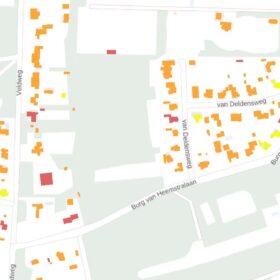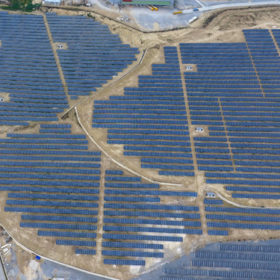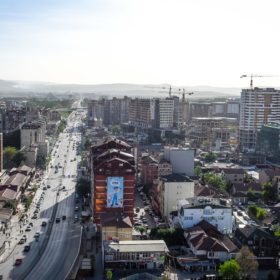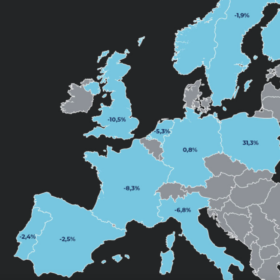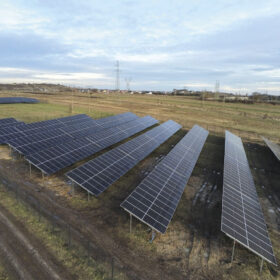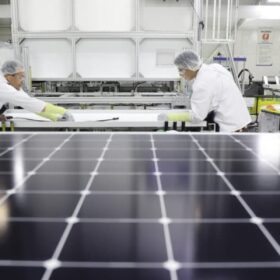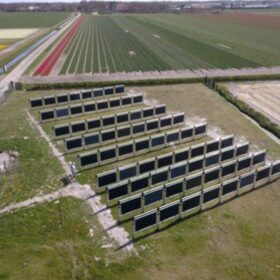Cameroon exempts imported PV components from customs duties
PV modules, inverters, charge controllers, batteries and cables intended for rooftop solar systems will benefit from exemptions from customs duties until 2025.
Netherlands identifies 725 km2 of solar-suitable rooftops
The Dutch government, through a new open-access PV database, has discovered that approximately 50% of all rooftops in the Netherlands could potentially host PV systems. However, only 8% of them could immediately accommodate solar arrays without the need for obstacle removal.
Turkey’s PV fleet surpasses 12 GW
Turkey’s total installed PV capacity reached 12.4 GW at the end of February. Turkish Minister of Energy and Natural Resources Alparslan Bayraktar says the country aims to add 3.5 GW of PV every year through to 2035.
European consortium wins 100 MW PV tender in Kosovo with $0.0524/kWh bid
A group led by Swiss construction group Orllati has won a 100 MW PV tender in Kosovo with a bid of €0.0488 ($0.0524)/kWh. The consortium has secured a lease for up to 30 years, supported by a 15-year power purchase agreement (PPA) with Kostt, the national market operator in Kosovo.
IRENA says solar capacity rose by 345.5 GW in 2023
The International Renewable Energy Agency (IRENA) says developers installed 345.5 GW of solar throughout the world in 2023. China mainly drove the surge, accounting for nearly three-quarters of all new renewable energy, but IRENA says more equitable growth will be needed to hit 2030 deployment targets.
Europe records 24 PPA deals for 1.1 GW of solar in February
Investors and developers in Europe signed 24 power purchase agreements (PPAs) for 1.1 GW of solar in February, making it a “month to remember,” according to Swiss consultancy Pexapark.
Polish grid operator switches off gigawatts of PV
Polish grid operator Polskie Sieci Elektroenergetyczne (PSE) has announced its third disconnection of renewable energy capacity this year. This time it has initiated the reduction of 1,201 MW to 1,877 MW of PV in response to oversupply.
Maxeon sues Canadian Solar for alleged TOPCon patent infringement
Maxeon has filed a lawsuit against Canadian Solar in a US court, claiming patent infringement on an unspecified TOPCon solar cell technology.
Netherlands approves ‘capacity limitation’ contracts for wind, solar
The Dutch authorities have approved “capacity limitation” contracts, allowing owners of PV and wind power assets to inject less electricity into the grid during peak times for “reasonable” remuneration, but standard contracts will be crucial for wider adoption.
Sweden records up to 1.4 GW of new solar for 2023
High interest rates, inflation, and customer uncertainty could slow down residential PV growth in Sweden this year, despite record solar installations in 2023, but interest in utility-scale PV remains strong.

